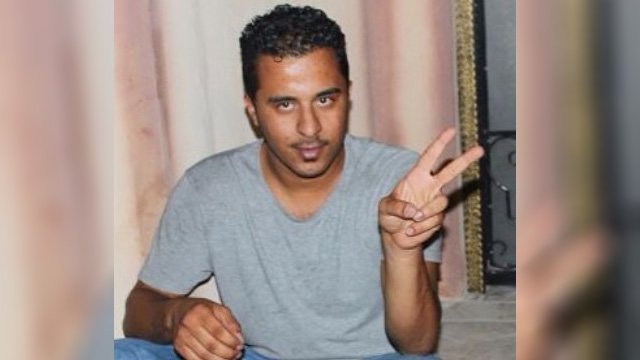Fadhel Sayed Abbas Radhi, a 30-year-old political prisoner, is currently serving a life sentence in AlQurain Prison, Bahrain. He was arbitrarily detained, forcibly disappeared, and sentenced to death; this sentence was later commuted to life imprisonment. In prison, Fadhel is suffering from mistreatment and various violations.
On 26 September 2016, at dawn, Bahraini riot police and security officers in civilian dress arrested Fadhel from his home in Hamad Town. The officers searched his house and arrested Fadhel without presenting any warrants. They did not even provide the reasons behind his arrest. He was then forcibly disappeared for a year and two months during which he was only allowed to make six phone calls. Officers closely monitored the phone calls, and Fadhel was not allowed to disclose his location. During his pretrial detention, officers physically and psychologically tortured Fadhel and kept him in solitary confinement. Moreover, authorities refrained from providing his family with the charges he’s facing, only saying he is accused in a terrorism case.
Fadhel was among the 17 civilians tried before the Bahraini High Military Court for the first time since 2011. The military courts are known for the lack of fair trials, opacity, and acceptance of torture-induced confessions. The defendants were charged with forming a terrorist cell and plotting to assassinate a military official, the Bahrain Defense Forces’ Commander-in-Chief. Some defendants in the trial were prevented from meeting with a lawyer until the third hearing in November 2017. The court rejected the defense counsel requests to re-examine suspects, question anonymous witnesses, and allow the defendants to speak during the initial appeal.
On 25 December 2017, the court found Fadhel guilty and sentenced him to death for the assassination attempt, along with 15 years of imprisonment. He was also stripped of his nationality. On 21 February 2018, the High Military Court of Appeals upheld Fadhel’s death sentence and prison term. Finally, on 25 April 2018, Bahrain’s highest military court, the Military Court of Cassation, rejected the final appeal to overturn the sentences. However, the King commuted Fadhel’s sentence to life imprisonment.
While in prison, Fadhel has faced many violations and has been denied medical treatment. Although in good health during the first 3 years, Fadhel started feeling pain in his back resulting from the abuse during his arrest. Despite the pain he was suffering, officers refused to attend to his medical condition, violating his right to medical treatment. After his continuous demands, Fadhel was taken to the military hospital where he was diagnosed with a herniated disc and underwent surgery. However, the administration has denied him the required medical treatment after his surgery, including a medical bed and medication. Furthermore, his condition requires physiotherapy sessions, or it could deteriorate further. Authorities denied him this treatment, and only after continuous demands and follow-ups did they agree to take him, two years after his operation. Fadhel underwent only one session, and authorities have not yet taken him to another session. As a result of this maltreatment, Fadhel announced a hunger and contact strike to protest the abuse and medical negligence on 22 March 2022, during his last call with his family. The last visit he received was on 24 February 2022, and the family has not received any call from him since March, meaning that his strike is currently ongoing.
Fadhel’s arbitrary arrest, forced disappearance, torture and trial in the military court are clear violations of the Convention against Torture and Other Forms of Cruel, Inhuman or Degrading Treatment or Punishment (CAT) and the International Covenant on Civil and Political Rights (ICCPR), both of which Bahrain is a party to. The government’s actions also explicitly violate recommendations that Bahrain accepted as part of its United Nations (UN) Universal Periodic Review (UPR) process, which called on the authorities to ensure that civilians are never again tried in military courts. Additionally, Fadhel’s denial of medical treatment in prison constitutes a violation of the Mandela Rules.
Americans for Democracy & Human Rights in Bahrain (ADHRB) urges the Bahraini government to repeal the constitutional amendment allowing the trial of civilians before the military court and hold a retrial for Fadhel before a civilian court, adhering to international standards of a fair trial. Moreover, ADHRB calls for an independent investigation into Fadhel’s allegations of torture and enforced disappearance, to hold perpetrators accountable. Finally, ADHRB demands that authorities meet Fadhel’s demands for adequate medical treatment so that he ends his strike.





